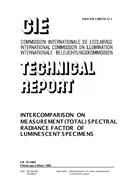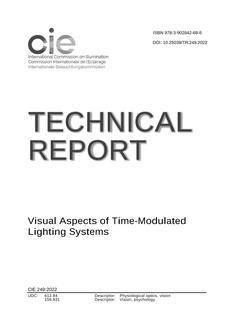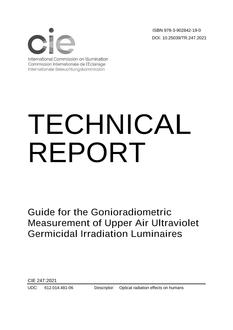Click here to purchase
This technical report describes a practical glare evaluation system for outdoor sports- and area lighting. The system can be used both for checking the glare situation of existing installations, provided suitable measuring instrumentation is available, and for predicting the degree of glare at the design stage for new installations, but the validity of the system is restricted to viewing directions below eye level. For the main categories of these applications, general glare rating limits are specified. The report concerns glare and glare restriction in, or very close to, the lighted area and not the effect of spill light outside this area.
The quality of most lighting installations can be expressed in terms of average lighting levels, uniformities and glare restriction. There has not, until now, been a generally accepted glare evaluation system for outdoor areas. The glare concepts, “threshold increment TI” and “glare control mark G” , commonly used in road lighting for motorised traffic, cannot be applied directly for area lighting. This is because the direction of view of observers is variable and not fixed; the lighting points are not necessarily positioned in regular line arrays; and the mounting heights and lighting levels are often outside the ranges for which the road lighting concepts have validity.
The degree to which a lighting installation causes glare depends upon the luminous intensity distribution and aiming of the luminaires, their number, their arrangement and mounting height and on the brightness of the illuminated area. This report describes and recommends for practical use, a glare evaluation system that takes into account all the above factors. The system is based on extensive field tests and has shown its applicability in different installations of adequate uniformity due to common specifications. It is assumed that the problem of intolerable glare experienced, when looking up and straight into a luminaire, is kept to a minimum by paying careful attention to the siting of the luminaires relative to the main directions of view. CIE reports on the lighting of the various kinds of floodlighting application fields give guidance in this respect.
Before a glare evaluation concept can be employed as a practical aid in lighting design, it is necessary to agree on standard observer positions and viewing directions. Standard positions and directions are specified with the intention of getting information on both the highest degree of glare and on the size of the area with a relatively high degree of glare.
For the main categories of outdoor area lighting installations, general glare restriction limits are specified.
The Technical Report contains 14 pages, with 6 figures and 3 tables.
Product Details
- Published:
- 01/01/1994
- ISBN(s):
- 9783900734558
- Number of Pages:
- 14
- File Size:
- 1 file , 620 KB


